News You Can Use
Welcome to News You Can Use!
You can find a lot of information online, but it can be difficult to find good and reliable information. Here, we have put together some information that may be useful to you and your family. These articles and resources were created by different people with different perspectives. Some information may be more helpful to you than other information. Remember: everyone’s experience is unique!
Table of Contents
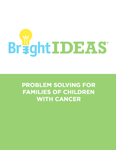
Parents Booklet
Download the Parent's Booklet to learn more about Bright IDEAS. This booklet contains printable worksheets and an example problem.
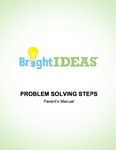
Parents Manual
This manual provides more detail about the Bright IDEAS strategy and a number of printable “automatic thoughts” reminders to keep on hand.
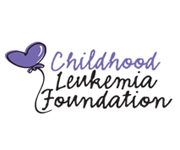
Childhood Leukemia Foundation
The Childhood Leukemia Foundation website has family resources that include educational information, suggested publications and links to online communities helpful for children with chronic illnesses.
https://www.clf4kids.org/for-families/
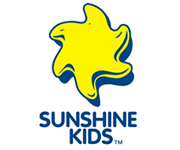
Sunshine Kids
National organization that offers local group activities as well as week-long regional trips for young cancer patients. Offices are based in Texas, California and in Canada. Information in Spanish about their services may be requested.
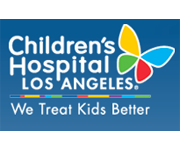
SearchHOPE.org
Find web-based information about childhood cancer, medical and emotional aspects, vetted by experts. Site developed by Children’s Hospital Los Angeles to help search the internet to find vetted information and resources for their ill child and family members regarding childhood cancer. Information available in Spanish.
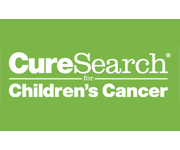
CureSearch
Contains basic overview of the types of childhood cancer, treatments, and impact on patients and families, organized by stage of the cancer journey. Also available are a discussion board, general cancer statistics, advocacy information and an examination of school issues and the health care system for childhood cancer patients. English and Spanish.
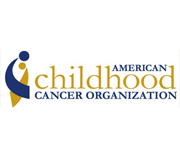
American Childhood Cancer Organization
American Childhood Cancer Organization (formerly Candlelighters Childhood Cancer Foundation) has parent/caregiver resources, as well as free educational materials for kids, teens, parents, siblings and teachers. It also has general treatment information, a kid's cancer camp list, and advocacy information.

SuperSibs
The SuperSibs site offers educational resources for parents, surprise and delight services for siblings of cancer patients, and two college scholarship opportunities specifically for siblings. Materials are available in English and Spanish.
https://www.alexslemonade.org/campaign/supersibs-sibling-support-childhood-cancer-families
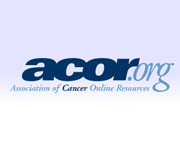
The Association of Cancer Online Resources, Inc.
Offers information about various types of cancer, including treatment options and clinical trials. The site also provides materials and listings of resources, while maintaining an extensive list of online communities on various types of cancer for parents, patients and the community at large.
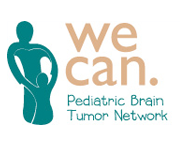
We Can Pediatric Brain Tumor Network
General facts about pediatric brain tumors and shares stories from both parents and children. There is also information about the Veteran Parent Program, WeCan2 Kids, Sibling Workshops, Teen Group, and We Can Family Camp. Information available in Spanish.
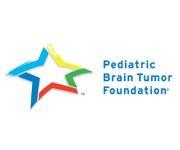
Pediatric Brain Tumor Foundation
The Pediatric Brain Tumor Foundation website offers a very accessible family support program with links to publications, educational materials and other relevant resources.
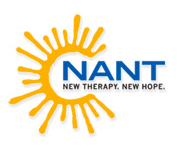
New Approaches to Neuroblastoma Therapy (NANT)
The NANT site features information about neuroblastoma, including current clinical trial information, medical journal publications and information about NANT institutions.
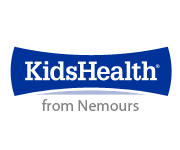
Growth and Development in Children
If you are looking for information you can trust about kids and teens that's free of "doctor speak," you've come to the right place. KidsHealth is the most-visited site on the Web for information about health, behavior, and development from before birth through the teen years. Information available in Spanish.
http://kidshealth.org/en/parents/growth/
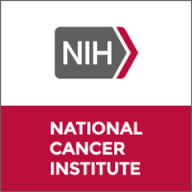
Complete Blood Count
Do you ever wonder what the doctor or nurse is talking about? Do you ever have to explain a procedure, laboratory result, or medicine to your child or to a friend?
Try linking to the National Cancer Institute (NCI) Dictionary of Cancer terms at: https://www.cancer.gov/dictionary. Here’s the answer to typing in “Complete blood count” but you could have just typed “CBC”
Complete blood count (kum-PLEET blud kownt)
A measure of the number of red blood cells, white blood cells, and platelets in the blood. The amount of hemoglobin (substance in the blood that carries oxygen) and the hematocrit (the amount of whole blood that is made up of red blood cells) are also measured. A complete blood count is used to help diagnose and monitor many conditions. Also called blood cell count, CBC, and full blood count.

Young People with Cancer: A Handbook for Parents
This comprehensive handbook was developed by the National Cancer Institute with input from families and health care providers. It is available in PDF format and can be downloaded for personal use and to distribute to family and friends who want to know more so they can support you and your family. As a parent, you will learn that there are many ways to approach communication with your child about the diagnosis and that there are many people available to help you explain the disease as well as treatments to your child. If your reading raises some questions in your mind, never hesitate to ask your child’s doctor or nurse for more information. Older brothers and sisters, in particular, may have questions or concerns that are addressed in the handbook that they can read about themselves.

Coping when your child has a diagnosis of a chronic illness or disability
Key points to remember
- if your child is diagnosed with a chronic illness or disability, it is an enormously stressful time
- coping is an ongoing process
- everybody copes in a different way - there is no right or wrong way
- seek support when you need it
What is coping?
When your child is diagnosed with a chronic (long lasting) illness or a disability, this is an enormously stressful time for parents and caregivers. Coping is an ongoing process and there is no right or wrong way to manage this time of your life.
You will go through a range of emotional experiences, similar to that of the grief cycle - denial, anger, depression, fear. All of these are normal and natural when faced with a stressful situation. There will be days where you feel that the world is against you and you want to bury your head under the duvet. It is important to remember you will come through it. It may just take time.
There are a number of different strategies which people use to help themselves and their families through this difficult time. Working out what strategy works for you is part of the coping process, so you may have to try some until you find the one that works best for you.
The following are some strategies you may find helpful:
- social support
- internet forums, blogs and online support groups
- individual counseling or therapy
- educate and advocate
- looking after yourself
Social support
The support that you receive from families and friends is very important. Take what help is offered and do not be afraid to ask for help. Finding a person who listens well and can understand your family situation is really important. Connect with your partner or important person in your life. Even if this is for ten minutes before you go to bed, these times all add up and can help to bring you some peace and normalcy back into your life.
Being able to tell your family and friends honestly about what is going on will make things easier, as you will not have to put on a front about how you are managing. Communication is a key part of developing an effective support network.
Local support groups are also really useful. This is an opportunity to meet and talk with someone who has been through a similar experience to yours. This tells you that you are not alone. Parent to Parent is a nationwide network of families who have experienced a diagnosis for their child. See below for their contact details.
Internet forums, blogs and online support groups
Internet forums like blogs or online support groups are also a good way of finding out what other people are experiencing and dealing with. Through this you can connect with others without face to face contact which many parents appreciate.
Individual counseling or therapy
Individual counseling or therapy can help you deal with the emotional experiences you are going through. Some hospital clinics will have access to psychological or counseling services so it is important that you ask your doctor about the support that’s available.
Educate and advocate
As a parent/caregiver you will always be your child’s number one advocate. It is important to become fully educated about what your child is going through. Develop relationships with all professionals involved in your child’s life. This includes people outside your medical team, such as school staff. Ask questions, find out what is available, and become fully informed about what supports your child is able to access.
The Internet is a great place to find out information, but it is important to remember that there is always more than one perspective on an issue, so make sure you are looking at reliable sources such as major hospitals or research centers.
- See more at: http://www.kidshealth.org.nz/coping-when-your-child-has-diagnosis-chronic-illness-or-disability
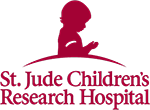
New study suggests children with cancer do not have an increased risk for developing Post Traumatic Stress Disorder than healthy peers
Despite being diagnosed with life-threatening illnesses, childhood cancer patients are no more likely than their healthy peers to develop post-traumatic stress disorder (PTSD).
According to a study carried out at St. Jude Children's Research Hospital in Memphis, Tennessee, young cancer patients were also more likely than children who experience other stressful events to report having benefited from the experience. Reported benefits included developing greater empathy and growing closer to family and friends. The research appears in the Journal of Clinical Oncology (2014; doi:10.1200/JCO.2013.49.8212).
The study included 255 St. Jude patients who were between ages 8 to and 17 years when their cancer was diagnosed. Based on self-reported patient symptoms, researchers concluded that 2.8%, or seven7 patients (2.8%), met the criteria for a diagnosis of PTSD either when the study was conducted or in the prior to the study timeframeast. The PTSD was cancer-related in two 2 patients. In the other five 5 patients, the anxiety disorder was linked to a drive-by shooting, Hurricane Katrina, or other stressful events.
This incidence of PTSD was comparable to with rates reported in community samples of children without cancer and a similar group of 101 healthy peers recruited for the study. The prevalence, however, contrasts sharply with previous reports from other investigators who identified cancer-related PTSD as a widespread problem. Those estimates suggested that 20% to 35% of childhood cancer patients would develop PTSD.
"These results should be very reassuring to childhood cancer patients and their families," said the study's first and corresponding lead author Sean Phipps, PhD, chair of the Department of Psychology at St. Jude Department of Psychology chair. "A cancer diagnosis is a highly significant and challenging event, but this study highlights the impressive capacity of children to adjust to changes in their lives and in most cases do just fine or even thrive emotionally as a result."
For this study, researchers used three established methods to screen pediatric cancer patients and their healthy peers for PTSD. Those included a symptom check list and a structured diagnostic interview about the event that each child identified as the most traumatic. Parents were also interviewed about PTSD symptoms in themselves and their children. The study is part of a long-term project to track adjustment and predictors of adjustment in pediatric cancer patients.
Unlike many previous studies of PTSD in cancer patients, researchers initially refrained from asking patients specifically about their diagnosis. Investigators wanted to avoid suggesting to patients that their cancer diagnoses were traumatic, Dr. Phipps explained. "We know such suggestions, called 'focusing illusions', prime individuals to think about their cancer experience as traumatic, and leaves them prone to exaggerating its impact in subjective reports," he said.
More than half of the patients identified their cancer as the most stressful event they had experienced. Of those who were long-term survivors, however, less than 25% cited cancer as their most traumatic experience. The study included patients whose cancer had been diagnosed between 1 month and more than 5 years earlier.

How do kids adjust to and cope with chronic illnesses?
The way children react to diagnosis with a chronic illness depends on several factors, including the child’s personality, the specific illness, and their family. One big factor is the child’s developmental stage. Kids’ understandings of illness and their coping strategies change as they grow older.
Here’s some information about how kids adjust at different stages:
- Infants and Toddlers are beginning to develop trust and an overall sense of security. They generally have very little understanding of their illness. They experience pain, restriction of motion, and separation from parents as challenges to developing trust and security. Parents can help by being present for painful procedures, staying with their children (when possible) during hospitalizations, and holding, soothing, and interacting with their baby as much as possible.
- Preschool Children are beginning to develop a sense of independence. They may understand what it means to get sick, but they may not understand the cause and effect nature of illness. For example, they may believe that throwing up causes them to get sick, rather than the other way around. Being in the hospital or adjusting to medication schedules can challenge the child’s developing independence. The child may try to counter lack of control over their world by challenging limits set by parents. Parents can help by being firm with things the child does not have a choice over (never ask “do you want to take your medicine now?” unless there’s really a choice—almost all children will say “NO!”), but by offering choices over flexible aspects of treatment. (For example, “Which to you want to take first, the pink medicine or the purple?” or “Do you want to sit on my lap while you have your blood drawn, or in the chair with me holding your hand?”) Parents can help their preschool child be resilient in times of stress.
- Early School-aged Children are developing a sense of mastery over their environment. They can describe reasons for illness, but these reasons may not be entirely logical. Children this age often have “magical thinking.” They may believe they caused illness by thinking bad thoughts, by hitting their brother, or by not eating their vegetables. Children also begin to sense that they are different from their peers. Parents can help by allowing children to help in management of their illness (with close adult supervision). They should also reassure their children that the illness is not their fault. Parents can help elementary school kids develop resilience in the face of a chronic illness.
- Older School-aged Children are more capable of understanding their illness and its treatment, but they should not be expected to react as adults do. They may feel left out when they miss school or activities with their peers. Parents may feel the need to protect their children by restricting them from activities with other children. This is a natural reaction, but it can interfere with the child’s independence and sense of mastery. To the extent allowed by the child’s doctors, parents should help the child to participate in school or other activities.
Information and support can be empowering, and reading what other kids have to say can make a kid feel less alone. Here are some websites just for kids:- www.Kidshealth.org has kid-friendly information on all kinds of health and illness topics.
- Bandaides and Blackboards for kids, is a site for kids with chronic illnesses or other medical problems.
- Adolescents begin to develop their own identity separate from their family. Self-image becomes extremely important during the teenage years. That can be a problem when the teen’s appearance is altered by illness or medication. Teens are also beginning to develop a real independence from their families. Parents who have been very involved in their teen’s care for many years may find it difficult to let go of their role as primary caregiver.
Many teens will go through times of denial of their illness when they may neglect to take medications, follow special diets, or check blood sugars. In addition, the adolescent’s body is rapidly changing, which may change the symptoms of the illness or the doses of medications needed. It is important to help the teen to gain control of their disease management. Keep in mind that even with chronic illness, teens are teens! Don’t forget to talk about issues facing all teens: independence, college planning, sexuality, substance abuse, etc.
There are some great websites just for teens:
- www.teenshealth.org has information for teens on all kinds of health and illness topics.
- Bandaides and Blackboards for teens has stories, ideas, advice, and poetry.
- On Chronic Illness Resources for Teens, teens share their stories of their experiences.
- Resilience for Teens—Got Bounce? offers tips from the American Psychological Association for building skills that can help teens cope in tough times.

Video Games Help Kids with Cancer Cope
More than 120 kids from hospitals across the U.S. helped us create Re-Mission 2. Richard and I got a chance to visit Children’s Hospital Los Angeles, to meet two of them: Caitlin and Jose, the two teens featured in the video. We weren’t sure what they were going to say, but their perspectives on Re–Mission 2 were hopeful and exciting.
http://blog.hopelab.org/tag/games-for-health

Coping With Your Child’s Cancer: One Mom’s Story
In 1997, Liz Scott's 1-year-old daughter Alexandra was diagnosed with neuroblastoma, a rare childhood cancer that develops in nerve cells. When Alex was 4 years old, she opened a lemonade stand to raise money to help "her doctors" find a cure for her cancer.
http://kidshealth.org/parent/_cancer_center/personal_stories/bfs_liz_scott_story.html
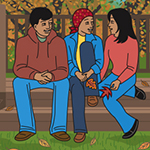
When Your Brother or Sister Has Cancer: A Guide for Teens
Do you have a teenager at home struggling with having a brother or sister with cancer? Does your teen want to know more about the disease? What will happen? If other siblings have questions, too? How other teens have coped? The National Cancer Institute (NCI) has a site ready to answer questions or direct your teen to other helpful resources.
Have your teen follow this link: https://www.cancer.gov/cancertopics/coping/when-your-sibling-has-cancer
The information at this site can be downloaded as an e-book or sent as a print booklet. The site also gives information about contacting an information specialist by telephone, live online chat, email, or regular mail.
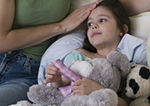
When your child is diagnosed with a chronic disease
Parents want to protect their children and keep them safe. It can be particularly devastating to learn that your child has a chronic illness such as diabetes, cancer or juvenile arthritis. By managing your own emotions during this time, you and your child can experience greater well-being.
http://www.apa.org/helpcenter/chronic-illness-child.aspx

Children Diagnosed with Cancer: Returning to School
The American Cancer Society website addresses a lot of questions about your child and cancer, including the issue of what to expect and how to prepare for your child’s return to school. Remember, the prognosis for many kinds of childhood cancer is very good. Thinking about the future educational and social needs of your child is something all childhood cancer centers focus on by having school room and tutoring activities in the hospital and helping families arrange after tutoring after discharge if your child needs to remain at home between treatments.
It’s never too early to start planning!!
The website below is a direct link to Returning to School. The page covers topics such as keeping the school informed, planning for return, arranging special accommodations if needed, and how to prepare your child for the questions that classmates and friends are likely to ask. http://www.cancer.org/treatment/childrenandcancer/whenyourchildhascancer...
You can download the information on this site to take to your child’s school to discuss reentry with the principal and the school nurse.
10 Apps That Distract Patients
In this article, Dr. Friedrichsdorf, the medical director of the Department of Pain Medicine, Palliative Care & Integrative Medicine of the Children’s Hospitals and Clinics of Minnesota discusses 10 smartphone Apps that he uses to distract children during painful procedures. You and your children may find these useful. Read more at the Children's Hospital Association Website.
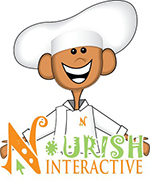
Nourish Interactive: a fun place to learn about nutrition!
Nourish Interactive is your free one stop resource for fun nutrition games for kids, interactive nutrition tools and tips for parents and health educators to use to promote healthy living for the whole family. Created by nutrition and health care professionals, Nourish Interactive's nutrition education website gives children and families the knowledge and skills they need to make healthy choices.

St. Louis Children's Hospital chef heals with food and friendship
In this article, read about Robert Grotha, executive chef at St. Louis Children’s Hospital, and how the food he prepares contributes to a healing environment for patients and their families.

Good Nutrition for Children with Cancer
Nutrition is an important part of the health of all children. It’s especially important for children getting cancer treatment to get the nutrients they need. Eating the right kinds of foods before, during, and after treatment can help a child feel better and stay stronger.
https://old.cancer.org/acs/groups/cid/documents/webcontent/002902-pdf.pdf

Nutritional Needs for Children with Cancer
When your child is undergoing cancer treatment, there's a lot to think about. Sometimes it can be easy to forget about your child's nutritional needs. But maintaining adequate nutrition is necessary for kids with cancer to stay healthy and cope with the side effects of cancer or its treatments.
http://kidshealth.org/en/parents/cancer-nutrition.html

Researchers uncover genetic cause of childhood leukemia
http://www.newswise.com/articles/researchers-uncover-genetic-cause-of-childhood-leukemia "For the first time, a genetic link specific to risk of childhood leukemia has been identified, according to a team of researchers from Memorial Sloan-Kettering Cancer Center, St. Jude Children’s Research Hospital, University of Washington, and other institutions."

New laws will help consumers find cheapest, best docs and hospitals
This article describes two recently passed bills to make it easier to find good doctors and how much medical care will cost. “One will require insurance companies to provide customers with a tool for doing cost- and quality-comparison shopping, while the other creates a public, statewide database with information on quality, but limited price data…”

Good News about Early Childhood Obesity Rates
Obesity in all children creates many problems, and can be especially challenging in kids with chronic illnesses. The USDA believes in giving children a foundation for life-long health through access to healthy food and quality nutrition education. Check out this article that shares the good news that childhood obesity may be declining.
https://scienceblog.com/71327/good-news-about-early-childhood-obesity-rates/
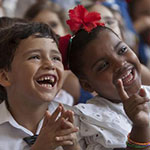
Laughter, the best meditative medicine
Want the potential mental and physical health benefits of meditation without the work of chasing away all those intrusive thoughts and feelings? Try laughing, a study suggests.
http://www.latimes.com/health/la-he-meditate-laugh-20140510-story.html

Bryan Fletcher overcomes childhood cancer, makes U.S. Olympic Team
Read Brian's inspiring story here: http://olympics.nbcsports.com/2014/01/23/bryan-fletcher-overcomes-cancer-makes-us-olympic-team-nordic-combined/
